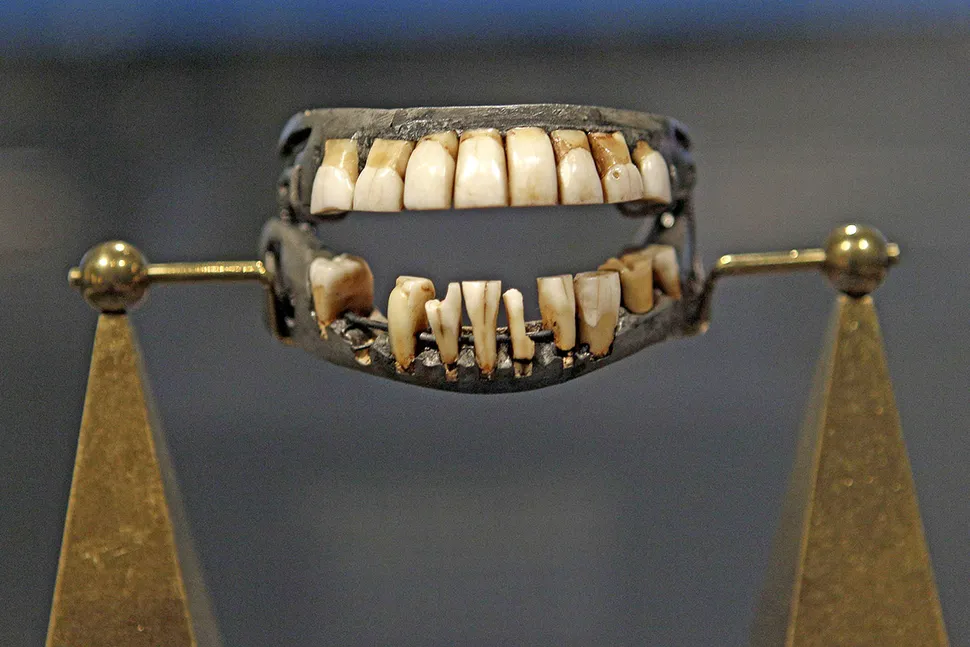Prince.Skeletor
Don’t Be Like He-Man
Wow I did not know this

"Dr. Lemoire," Gehred said, was a reference to Dr. Jean Le Mayeur, one of Washington's dentists, with whom he subsequently corresponded about purchasing a set of dentures. There's no way to be sure that the nine teeth bought from the slaves ended up in the dentures, Gehred said, but it's possible that Washington and a dentist struck a deal in which Washington would buy teeth at cut-rate prices from the people he owned in order to bring down the overall cost of the dentures.
Surviving newspapers feature ads by Le Mayeur seeking people willing to have their teeth pulled for cash; one, from Richmond in 1785, offers two guineas per front tooth, "slaves excepted." At that rate, the nine teeth bought from Washington's slaves should have cost 19 British pounds, Gehred said. Washington paid only about 6 pounds.
"The fact is, these are people who are desperate enough that they are selling their teeth to a dentist, and they're not being paid as much as a white person," Gehred said.

"Dr. Lemoire," Gehred said, was a reference to Dr. Jean Le Mayeur, one of Washington's dentists, with whom he subsequently corresponded about purchasing a set of dentures. There's no way to be sure that the nine teeth bought from the slaves ended up in the dentures, Gehred said, but it's possible that Washington and a dentist struck a deal in which Washington would buy teeth at cut-rate prices from the people he owned in order to bring down the overall cost of the dentures.
Surviving newspapers feature ads by Le Mayeur seeking people willing to have their teeth pulled for cash; one, from Richmond in 1785, offers two guineas per front tooth, "slaves excepted." At that rate, the nine teeth bought from Washington's slaves should have cost 19 British pounds, Gehred said. Washington paid only about 6 pounds.
"The fact is, these are people who are desperate enough that they are selling their teeth to a dentist, and they're not being paid as much as a white person," Gehred said.

